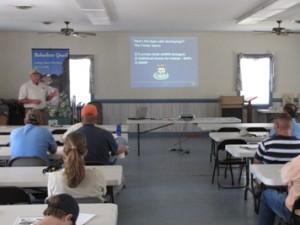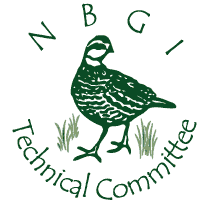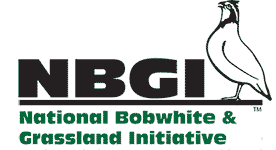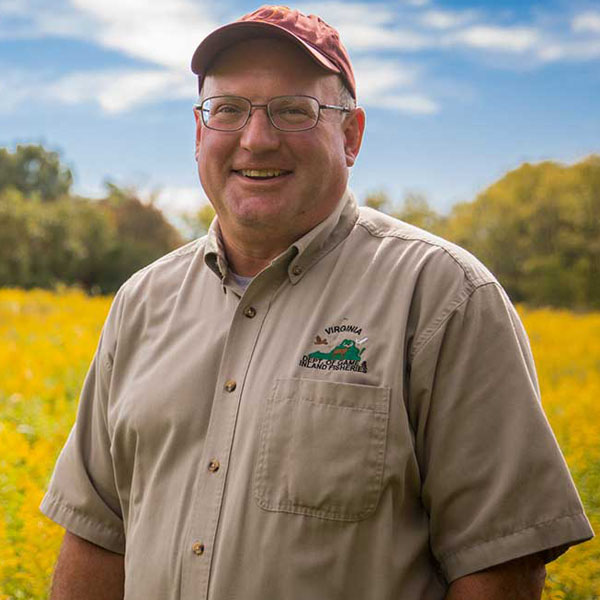Some would say that the phrase “successful failure” would be an oxymoron. I would not.
Some may say that makes me the last half of the last word in the first sentence. Time will tell.
Our quail recovery initiative has hit the 5 year mark here in Virginia. As hard as we have worked and as much progress as we have made, many may still consider us a “failure” because their sole measure of success is restoration of quail throughout the entire Commonwealth. Well…that won’t be done in 5 years, or 10…it may take 15 or 20, or 25 or more … as it did for deer, turkey, bear and others.
I know I am very proud of our quail team. And the key word is TEAM, and the dozens of landowners, conservation professionals, non-governmental organization members and other entities comprising it. And I believe if we have been a failure we have been a remarkably successful failure. In fact, I’d be proud to be associated with failures of this magnitude. Indefinitely. And I would further say if we continue to fail at this rate, we’ll restore quail in my lifetime (I am 51 now – this is if I live to be 71 – and there are no guarantees on that).
Last year our quail team was presented the 2013 Merit Award by the Virginia Society of Soil and Water Conservation. The award was given to us for team building and partnership. Our core quail team consists of the Virginia Natural Resources Conservation Service, the Conservation Management Institute at Virginia Tech, our private lands wildlife biologists and the DGIF small game team. Many, many others are part of this team and have graciously partnered with us over the past five years.
What have we done? For starters over the last 5 years our private lands wildlife biologists have made over 2,000 site visits, to almost 1,400 unique landowners, writing over 1,200 management plans, participating in over 950 outreach events, and created or maintained over 33,400 acres of early-succession habitat. This represents $4,307,900 dollars in cost-share – or an average of about $128.00 per acre of habitat. The landowners they have worked with collectively own over 229,000 acres of land.
 |
|
During this same time period we distributed over 2,000 promotional DVDs, over 2,000 habitat management DVDs, conducted workshops for more than 525 people, enrolled 320 landowners in our Quail Management Assistance Program, have appeared on Virginia Farming several times, have had articles on quail recovery in all major newspapers and magazines, organized the Virginia Quail Council with 28 signed conservation partners, worked with the Virginia Department of Forestry to implement a new wildlife friendly forestry best management practices program, completed two research pilot projects, planned for new research, helped develop several quail habitat demonstration areas, supported prescribed fire training for all our staff, continued our yearly quail surveys, and simultaneously enhanced our survey methods to include numerous species of early-succession habitat associated song-birds such prairie warblers, field sparrows, and towhees.
Simultaneously, several of our staff have held office in the National Bobwhite Technical Committee, and its strategic implementation component, the National Bobwhite Conservation Initiative. Virginia is one of seven pilot states testing NBCI’s new model focal area program – designed to document the association between habitat and quail, and to provide opportunities for even small, quail-range outlying states to show meaningful progress. And in summer 2013 we hosted the 19th annual meeting of the National Bobwhite Technical Committee with help from many of our members and sponsoring entities.
Along the way our Virginia Quail Council members also collected goods and sent care packages to our troops in Afghanistan. The 4th Brigade Combat Team (Airborne) 25th Infantry Division presented a Certificate of Appreciation and Unit Flag to our Virginia Quail Council.
I think no species has allowed wildlife professionals to train more landowners or partner agency staff about real wildlife habitat management than has the bobwhite quail. When we go back to Aldo Leopold’s “fire, cow, ax and plow” as the basic four wildlife management tools – the bobwhite has allowed us to bring those tools and many modifications to more landowners than any other species I can think of.
I believe there is a quail recovery brewing. Our ability to detect it is in development but not yet fully formed. But we have “sown seeds with faith,” thousands of them. And many of them “have fallen on fertile ground and are producing fruit.” I believe if we continue to “fail” as well as we have in the last 5 years, and if the National Bobwhite Conservation Initiative is given the chance to “fail” in such a manner on a larger scale, the bobwhite quail has a bright future. We can “snatch quail victory from the predatory jaws of defeat.”
Thanks to everyone who has supported us in these efforts over the past 5 years, and we hope you will continue to support us in the future.
Members of the Virginia Quail Council include: Virginia USDA NRCS, and USDA FSA, Conservation Management Institute at Virginia Tech, the U.S. Forest Service, Virginia Tech College of Natural Resources, Quail Forever, Quail and Upland Wildlife Federation, Virginia Department of Forestry, the National Wild Turkey Federation, the Ruffed Grouse Society, Angler Environmental, the Nature Conservancy, the National Audubon Society, Virginia Department of Conservation and Recreation Divisions of, State Parks, Natural Heritage and Soil and Water Conservation, including the Agricultural Cost-share Program, Virginia’s Soil and Water Conservation Districts, Virginia Department of Mines, Minerals and Energy, Virginia Cooperative Extension, Virginia Department of Transportation, the U.S. Army Corps of Engineers, Dominion Virginia Power, American Electric Power, Quantico Marine Corps base, U.S Army – Ft. Pickett and Ft. A.P. Hill, U.S. Army Radford Army Ammunition Plant, American Woodcock Initiative, Reese, River Birch and Falkland Farms (Halifax County), Central Virginia and Rappahannock Electric Cooperatives and the Wildlife Foundation of Virginia.


